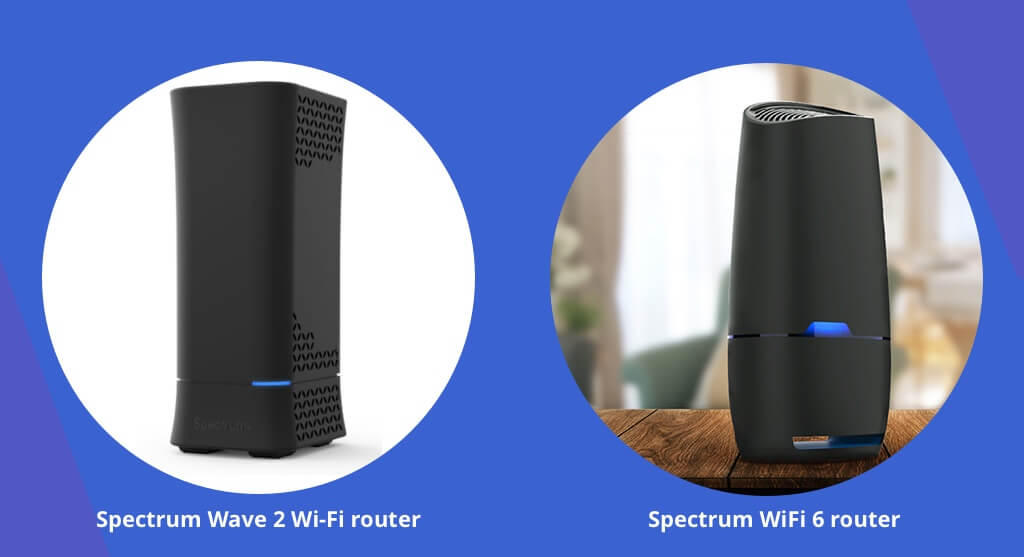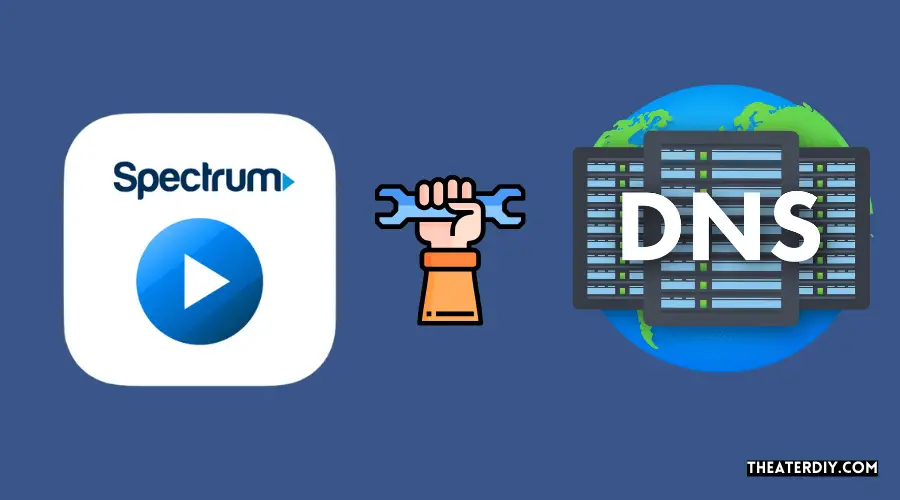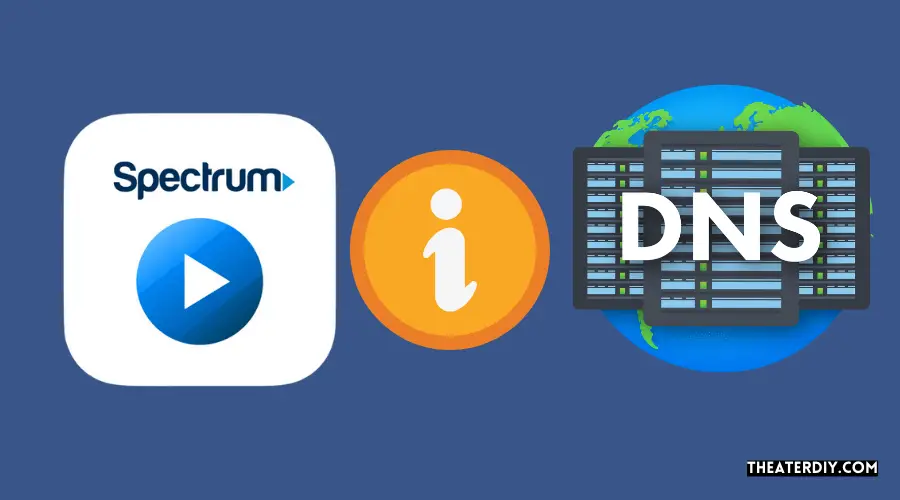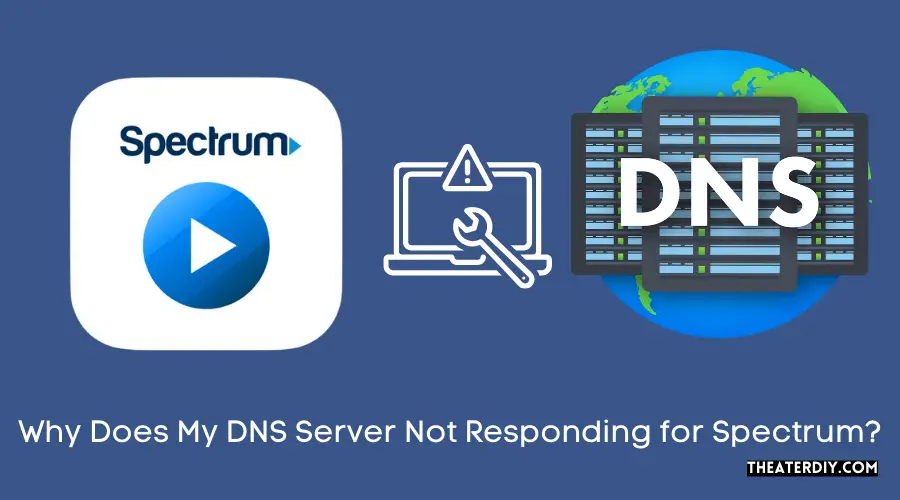If your DNS server is not responding while using Spectrum, it may be due to an issue with the router or modem. It could also be caused by a faulty connection between the router and modem or even an outage in your area. It’s possible that there could be a configuration issue with the router that needs to be addressed as well.
Troubleshoot Spectrum DNS Errors Now
To resolve this issue, you should try restarting both your modem and router. If this does not work, then you should contact Spectrum support for help troubleshooting and resolving the issue further.
The DNS server not responding for Spectrum is a common issue that many users have experienced. It can be caused by several factors, such as incorrect settings on the router or modem, an outdated version of your operating system, faulty network adapters, or a problem with your ISP’s connection to their own DNS servers. If you’re having this issue and can’t seem to fix it yourself, it may be time to contact Spectrum technical support for help in troubleshooting and resolving the issue.

How Do I Fix My Spectrum DNS Server?

If you are having problems with your Spectrum DNS server, there are a few things you can do to try and fix the issue. First, check to make sure that all of your connections from your modem to your router and other devices connected to it (e.g., computers) are secure and working properly. If everything looks good in this regard, then you will want to restart both your modem and router by unplugging each device for 10 seconds before plugging them back in again.
Once those two devices have been restarted, open up a command prompt on one of the connected devices (if using Windows, this can be done by pressing Win+R followed by typing ‘cmd’), type ipconfig /flushdns into the command line window, hit enter, then close out of the window when finished. This should reset any DNS caches stored on that particular device which can help resolve connection issues related to DNS servers not responding correctly or at all.
Next step is verifying that the correct IP addresses are being used for the DNS servers – if they don’t match what’s provided by Spectrum then they may need updating accordingly so as to ensure no conflicts occur between different providers’ settings or incorrect configurations cause connectivity problems down the road due too address mismatches etc..
To verify/update these settings simply go into network/internet options within whichever operating system is running on said device(s) being used – typically found under Network & Internet Settings > Change Adapter Options > Right-click Properties next select “Internet Protocol Version 4” followed by entering appropriate data from provided list given via ISP customer service representative or online support page respectively; finally upon completing required steps reboot effected systems after making modifications prior taking further measures resolving issue if necessary otherwise contact customer service team technical specialist able assist providing additional assistance troubleshooting matter further till resolution achieved satisfactorily!
What DNS Server Should I Use Spectrum?
When trying to decide which DNS server you should use with your Spectrum Internet connection, the most important factor is reliability. You want a DNS server that will provide you with fast and reliable service so that your web browsing experience will be as smooth as possible. With this in mind, it’s recommended that users choose either Google Public DNS or OpenDNS for their Spectrum Internet connection.
Both of these services offer excellent uptime, speed, and security features. Additionally, both services have great customer support teams available 24/7 if any issues arise while using their respective DNS servers. Ultimately, when choosing a DNS server to use with your Spectrum internet connection, make sure you do some research first to ensure you select the best one for your needs.
How Do I Fix the DNS Server Isn’t Responding?
If you’re having trouble connecting to the internet and are receiving an error message that says “DNS server isn’t responding,” there are a few steps you can take to try and fix this issue. First, check your connection settings. Make sure that your router is connected to the modem correctly, or if you’re using Wi-Fi, make sure that it’s enabled on both devices.
You should also ensure that your DNS servers are set correctly in the network configuration settings of your computer. If they aren’t, then changing them may resolve the problem. Additionally, resetting or restarting your router can often help as well; simply unplug it from its power source for 30 seconds before plugging it back in again.
Finally, running a virus scan on all of your connected devices may be beneficial too since malware infections have been known to cause DNS issues in some cases. Hopefully one of these methods solves the problem so that you can access websites without any issues!
What Does It Mean When Wifi Says DNS Server Not Responding?
When you see the message “DNS server not responding”, it typically means that your computer is having difficulty connecting to the Internet. This can be caused by a variety of issues, including problems with your router or modem, incorrect settings on your device, DNS caching issues, or network congestion. The most common cause of this issue is an incorrect Domain Name System (DNS) configuration setting on your device.
A DNS server acts as a bridge between IP addresses and domain names; when you type in a website address into your browser, the DNS server looks up its associated IP address so that it can connect to the correct web page. When there is an error in this process – either due to incorrect settings or because the DNS server isn’t available – then you will get an error message saying that “DNS Server Not Responding”. To fix this problem, first check if there are any errors with your router or modem’s connection settings – these should match what they were provided by your internet service provider (ISP).
If everything looks okay here then try clearing out any temporary files stored by Windows in case they are causing conflicts with the routing information being sent back from the ISP’s servers; open up Command Prompt and type ipconfig /flushdns followed by Enter. You may also want to try using different public DNS services such as Google Public DNS or OpenDNS which could help speed up browsing times and resolve intermittent connectivity issues like this one as well.
Spectrum DNS Issues Today
Today, many Spectrum customers are experiencing DNS issues with their internet connection. Although the company has yet to reveal the exact cause of the issue, they have confirmed that it is not related to any malware or virus infection on customer devices and instead appears to be a temporary technical glitch affecting certain areas. In order to resolve this problem in a timely manner, Spectrum support teams are working quickly to identify and fix the underlying cause.
Customers can also try restarting their router as an initial troubleshooting measure which may help restore service.
Spectrum DNS Issues 2022
Spectrum DNS issues in 2022 may be cause for concern, as the company is currently rolling out a new Domain Name System (DNS) platform to replace its existing system. This new platform is intended to provide improved performance and reliability, but there have been reports of users experiencing slower connection speeds and intermittent connectivity issues when using the new system. As such, it’s important for Spectrum customers to stay informed about any DNS-related updates that may come down the pipeline in 2022 so they can take appropriate measures should any problems arise.
Spectrum DNS Issues 2023
As the world increasingly adopts new technologies, many internet service providers are facing DNS issues with Spectrum in 2023. Users have reported increasing latency and connection problems due to a lack of understanding of how DNS works. In response, Spectrum is developing new methods for handling DNS requests more efficiently by using advanced caching techniques, and they have also increased their number of servers to improve overall performance.
With these measures being taken, customers should experience fewer network issues related to DNS in 2023.
Fastest DNS Servers for Spectrum
Spectrum’s fastest DNS servers are located in the US and provide customers with fast, secure connection speeds. These DNS servers use Anycast routing technology to ensure that your web requests are routed to the closest server, reducing latency and improving connection speed. They also offer privacy protection by encrypting all data sent over the internet as well as providing advanced security features such as malware detection and prevention capabilities.
With these fast, reliable DNS servers from Spectrum, you can be sure of a safe and speedy online experience every time!
Spectrum DNS Servers in My Area
Spectrum DNS servers provide internet users in your area with faster and more reliable access to the web. By using Spectrum’s DNS servers, you can reduce latency issues and get faster page loading times while browsing the web. Furthermore, by using Spectrum’s DNS servers you can ensure that your connection remains secure as they use advanced security protocols to protect user data from malicious attacks.
Spectrum Dns Servers for Ps4
Spectrum DNS servers can be used to improve the performance of your Playstation 4 (PS4). By using a Spectrum provided DNS server, you will have access to faster speeds when playing online games and streaming content. This is because Spectrum’s infrastructure is dedicated to providing reliable internet connections which help reduce latency issues and allow for smoother gaming experience.
Additionally, by utilizing their network, you may get improved connection reliability as well as increased download speeds when downloading games or updates from the PlayStation Store.
Spectrum Business DNS Servers

Spectrum Business Dns Servers are a high-performance, secure DNS service offered by Spectrum Enterprise to its customers. With this service, businesses can manage their domains and point them to the correct servers with ease. In addition to providing an easy-to-use interface for managing domains, the servers also provide enhanced security features such as Domain Name System Security Extensions (DNSSEC) and IPv6 support that helps protect against cyber threats.
Plus, these servers offer improved speeds and performance which help ensure websites load quickly and efficiently.
Spectrum Ipv6 DNS Servers
Spectrum IPv6 DNS Servers are a type of Domain Name System (DNS) servers that provide access to the Internet for devices with an IPv6 address. These servers allow users to connect and route their traffic over the internet more efficiently, as they are designed specifically for IPV6 networks. They also offer enhanced security features, such as encryption and authentication, which help protect data from malicious attacks.
Spectrum’s IPv6 DNS Server provides customers with faster speeds, improved reliability, and better performance when connecting online.
Conclusion
In conclusion, there could be several reasons why your DNS server is not responding for Spectrum. From internet outages to DNS issues with your ISP or router settings, it’s important to identify the cause of the issue before attempting any troubleshooting steps. Fortunately, most of these issues are easily resolved with a few simple fixes that can get you back online in no time.

